|
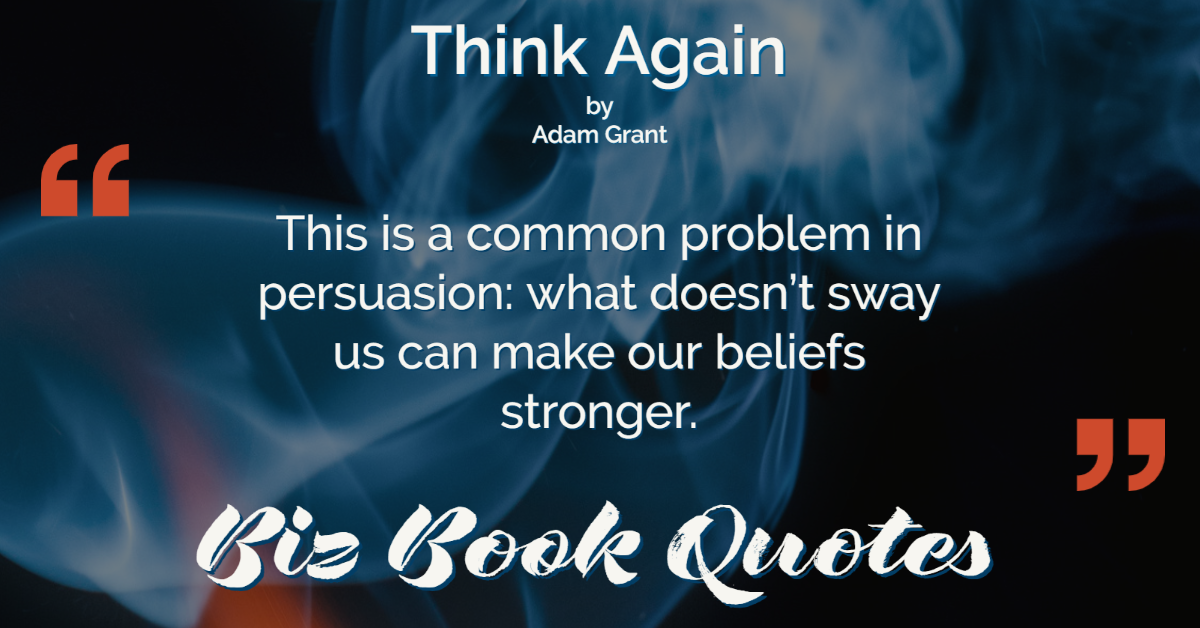
|
Think Again:
This is a common problem in persuasion: what doesn’t sway us can make our beliefs stronger.
|
145 |
|
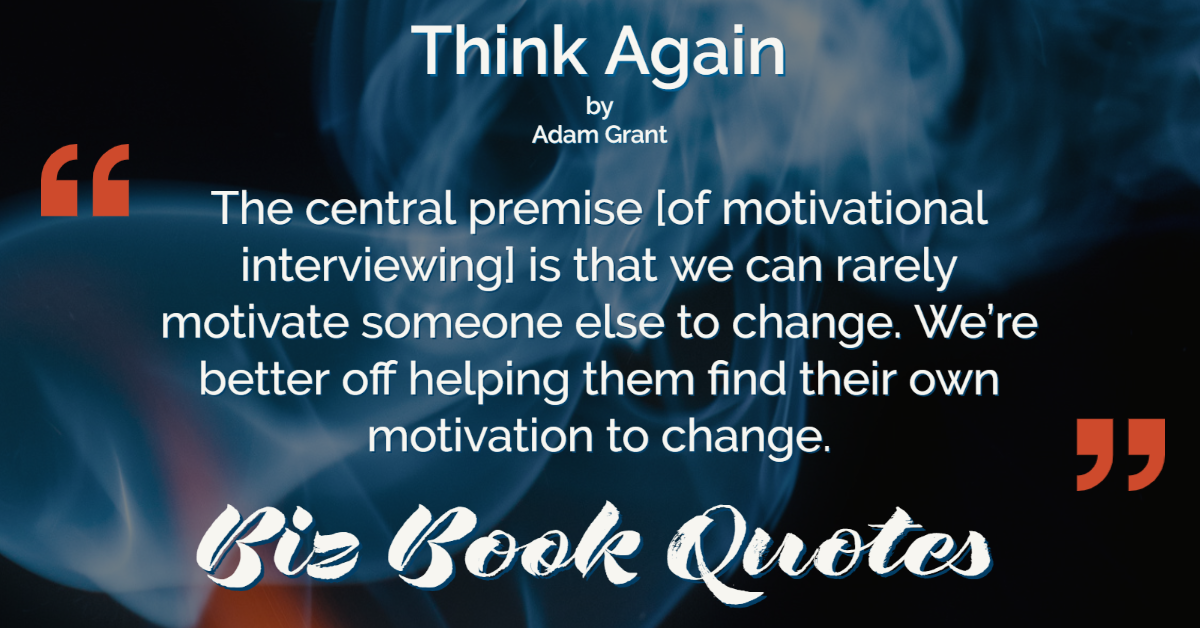
|
Think Again:
The central premise [of motivational interviewing] is that we can rarely motivate someone else to change. We’re better off helping them find their own motivation to change.
|
146 |
|

|
Think Again:
When people ignore advice, it isn’t always because they disagree with it. Sometimes they’re resisting the sense of pressure and the feeling that someone else is controlling their decision.
|
150 |
|
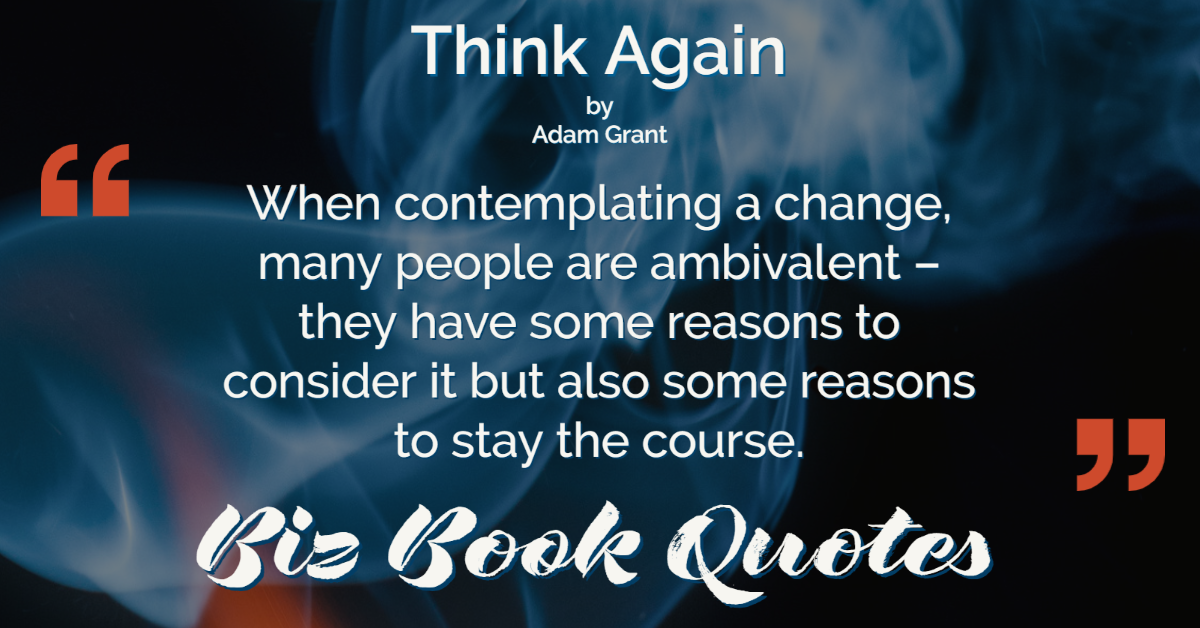
|
Think Again:
When contemplating a change, many people are ambivalent – they have some reasons to consider it but also some reasons to stay the course.
|
152 |
|
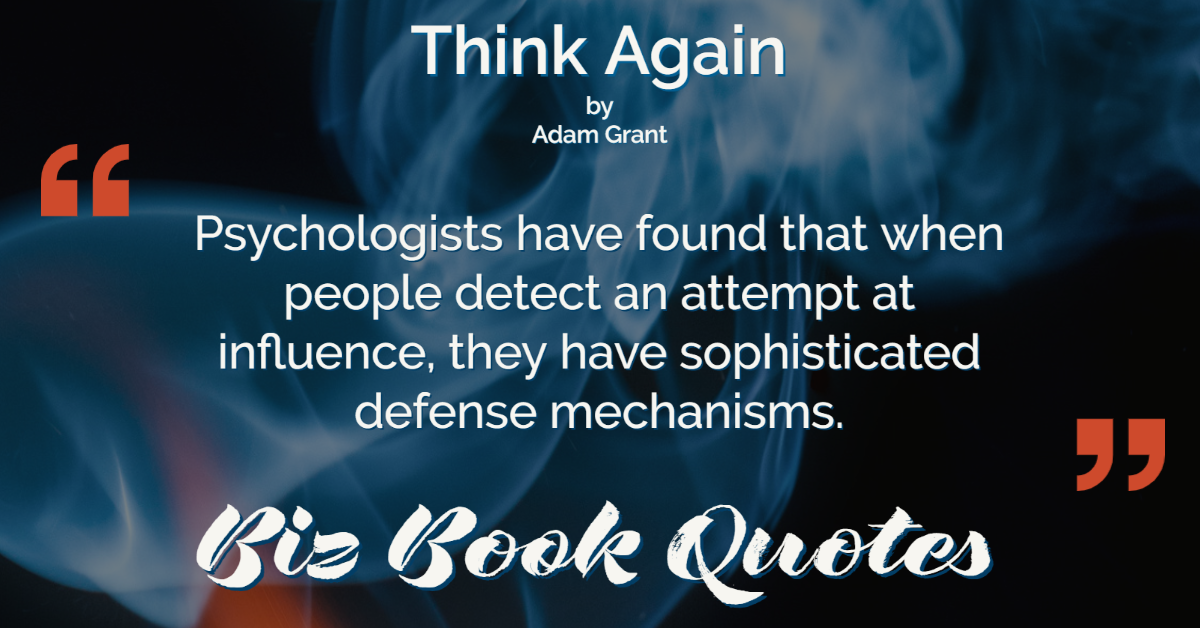
|
Think Again:
Psychologists have found that when people detect an attempt at influence, they have sophisticated defense mechanisms.
|
155 |
|
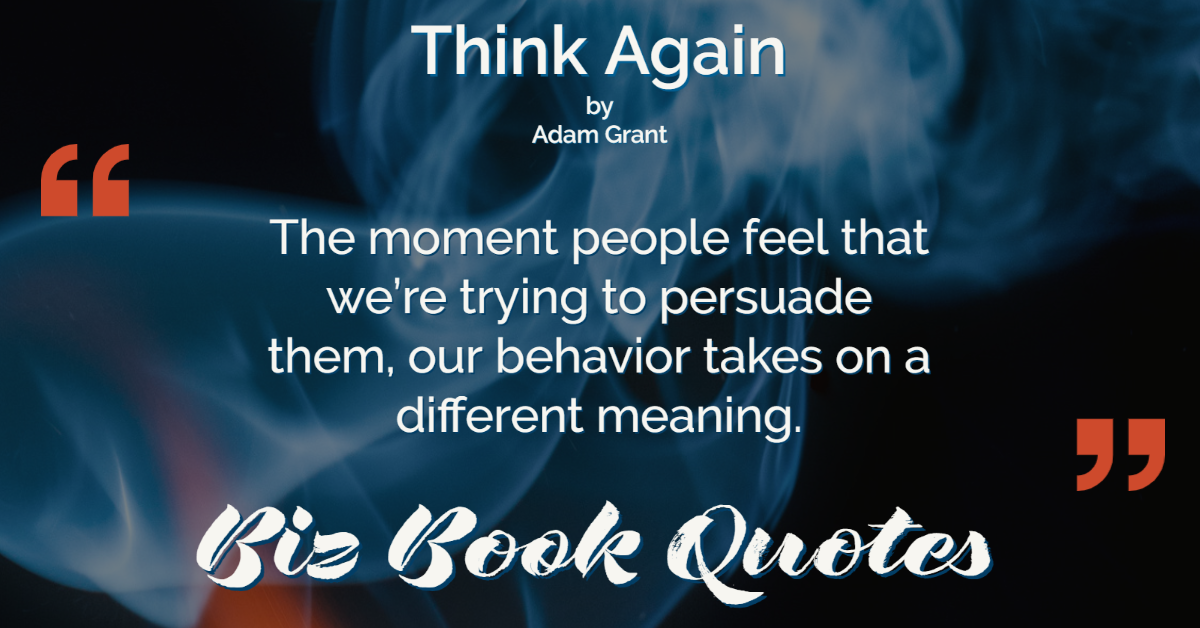
|
Think Again:
The moment people feel that we’re trying to persuade them, our behavior takes on a different meaning.
|
155 |
|
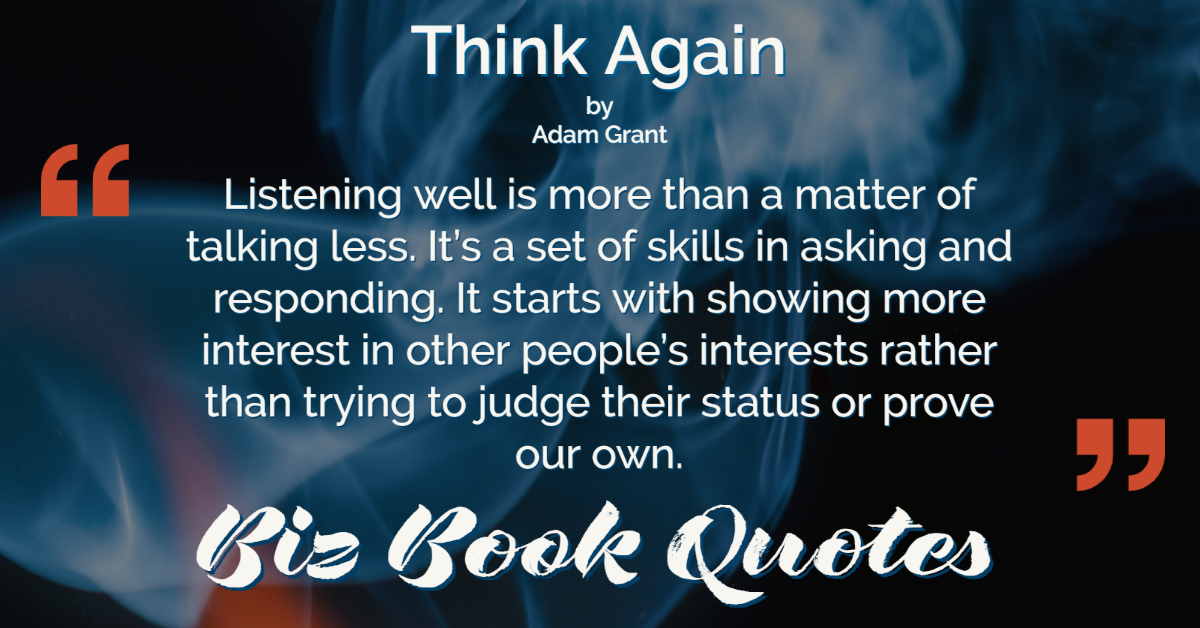
|
Think Again:
Listening well is more than a matter of talking less. It’s a set of skills in asking and responding. It starts with showing more interest in other people’s interests rather than trying to judge their status or prove our own.
|
156 |
|
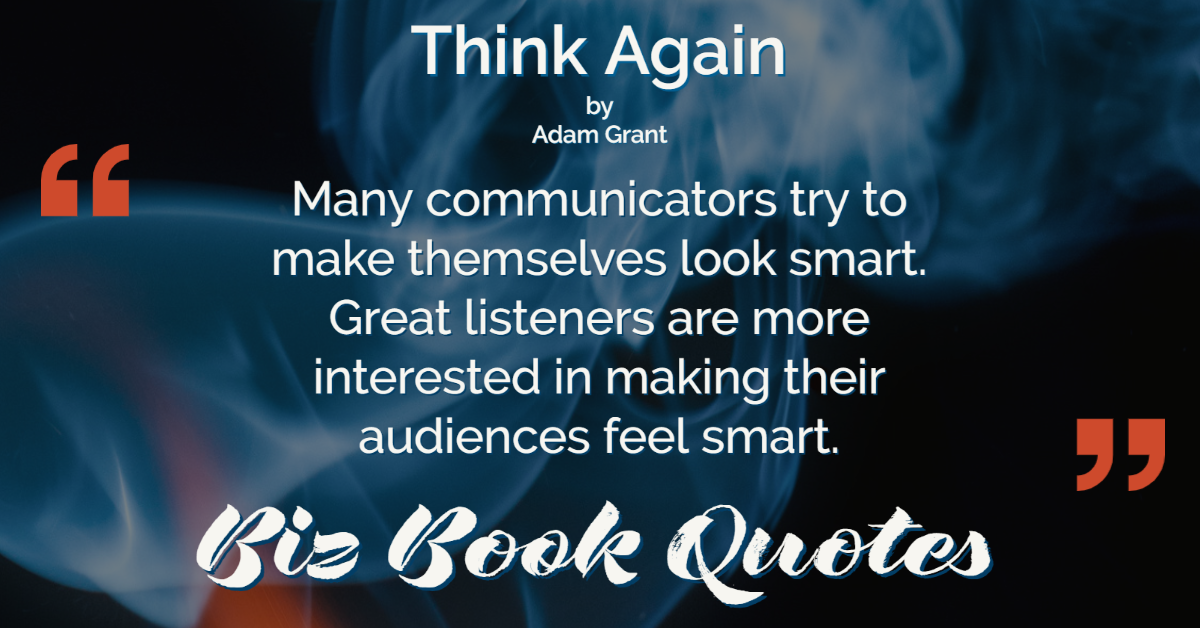
|
Think Again:
Many communicators try to make themselves look smart. Great listeners are more interested in making their audiences feel smart.
|
158 |
|

|
Think Again:
When people have a chance to express themselves out loud, they often discover new thoughts.
|
158 |
|

|
Think Again:
The power of listening doesn’t lie just in giving people the space to reflect on their views. It’s a display of respect and an expression of care.
|
159 |











